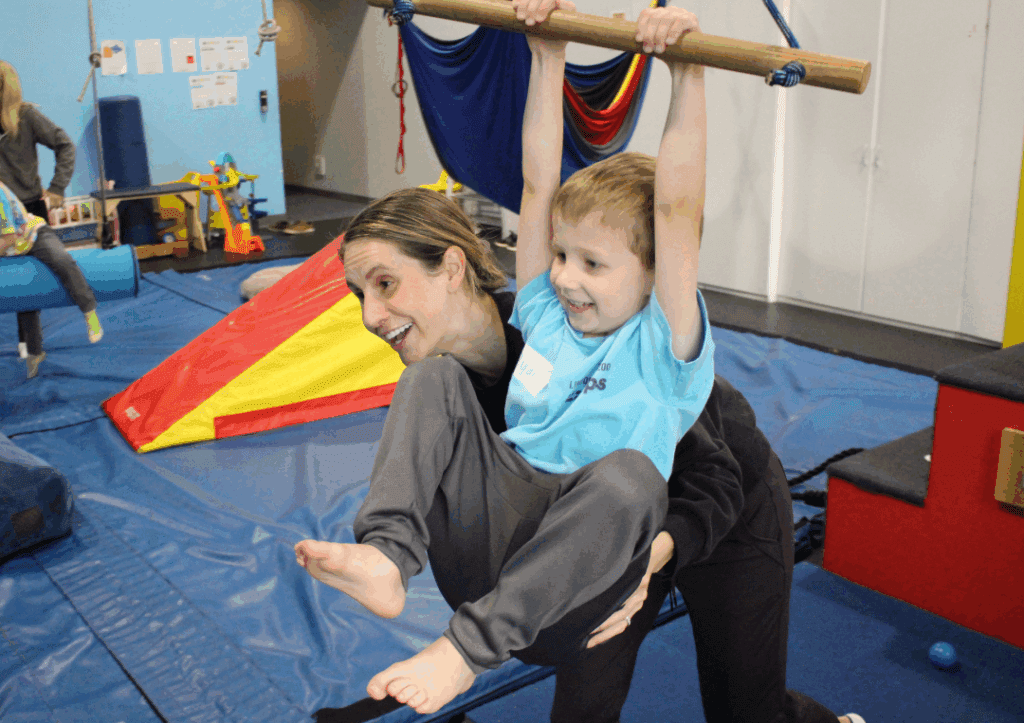Benefits of a Pediatric Physical Therapy Evaluation
In today’s world, parents and caregivers are overwhelmed with information. Getting a physical therapy evaluation may seem like a lot when you are already doing and seeing so much. Between social media posts and the dreaded Google, in a matter of minutes you have been exposed to hundreds of examples, opinions, and “facts” regarding what constitutes typical development. Next thing you know, you find yourself comparing your child to this online information. You’re wondering if your child is meeting their developmental milestones on time. Or maybe you’ve miraculously managed to stay away from the confusion of the internet. However, your pediatrician has mentioned a concern? Or maybe your pediatrician is insistent that there is no need for concern! Good, right? Wrong because your your parent intuition is calling you to seek more information about your child’s development?
As the saying goes, “comparison is the thief of joy,” but how do you know when you are too far down the rabbit hole of comparison and misinformation online, and when to truly be concerned and take action? This is where a pediatric physical therapy evaluation comes in:
- to listen to your concerns,
- to utilize a specialized skill set to assess and screen your child to either validate or refute your concerns, and
- to provide you with research based, quality education about (and, if needed, treatment for) your child’s gross motor development.
Physical Therapists are Ready to Listen to Your Concerns
If you have grown accustomed to the “fast-food style” of doctors appointments, being rushed in and rushed out, you will be pleasantly surprised by your physical therapy evaluation. Pediatric physical therapists want to listen to your concerns and observations about your child’s development. A main component of a pediatric physical therapy evaluation is the conversation between the provider and the family. The purpose of this conversation is to learn about each unique child. Many times, it is the seemingly unrelated or minute detail about your child’s daily routine that provides the therapist with key information about the child’s development. Your insight, along with the therapist’s specialized skill set, is essential! They all come together to determine if your child is in need of therapy services.
What to Know About Pediatric Physical Therapists
A licensed pediatric physical therapist is educated in childhood development. This includes both musculoskeletal and movement pattern development. In addition to education, pediatric physical therapists also have clinical experience working specifically with children. They have seen many children with a variety of needs over the course of the lifespan. Their education in combination with their clinical experience provides pediatric therapists with a specialized skill set to assess a child’s movement abilities and determine if a parent should be concerned by either the acquisition or quality of their child’s gross motor skills.
This skill set also allows pediatric physical therapists to determine if a child’s movement pattern places them at risk for motor development concerns in their future. For example, your child may currently be acquiring their gross motor skills in a timely way, but perhaps they are demonstrating an atypical posture or pattern. A trained pediatric therapist is able to determine if this atypical pattern will cause difficulty with gross motor skills later in life.
Lastly, physical therapists have been trained to screen for other medical concerns and developmental needs. If either of these is identified during your child’s evaluation, the therapist can provide you with the necessary referrals to address these concerns. For these reasons, a pediatric physical therapist is best suited for helping you either validate or refute your concerns about your child’s gross motor development.
Early Intervention Results in the Best Outcomes
If your therapist does identify a need for skilled physical therapy, such as delayed gross motor skills or atypical movement patterns, and recommended services – fear not! Research shows that early therapeutic intervention results in the best outcomes. Children’s brains are very neuro-plastic, meaning they can more easily learn a new movement pattern or skill than adults. The earlier your child’s needs are identified, the earlier they can receive skilled intervention, achieving the best possible outcome.
However, neuroplasticity is occurring whether your child is practicing quality movement patterns or not. Therefore, an early evaluation can prevent your child from learning and engraining poor movement patterns into their movement repertoire, which as mentioned above, also decreases the risk of these atypical movement patterns negatively impacting their gross motor development in the future.
Pediatric Physical Therapy – Plans and Purpose
Your therapist will create a specific plan for your child during the physical therapy evaluations. It will include researched based and effective treatment strategies. Also included will be home programming, to help your child achieve their goals. As your child progresses their gross motor skills, they will hopefully “close the gap” between their performance and their peers. This ultimately helps them participate happily in their daily environments. If your therapist does not recommend skilled physical therapy, you can leave your appointment with the newfound gumption to ignore the tidal wave of online information that is presented to you daily. You should also leave your appointment with trusted and factual information about gross motor development. Information included might be the next skill your child should acquire! Also you will have red flags to look for that would warrant reaching back out to the physical therapist.

Contact Us!
As you can see, the answer to the question above is “To go!” A pediatric physical therapy evaluation should not wait until after your concerns have become a larger problem for your child. The sooner the evaluation occurs, the sooner your child is their way to joyfully moving. Call our Center today to schedule your pediatric physical therapy evaluation! You can reach our staff at 773-687-9241! More information about Pediatric Physical Therapy at CPTWC can be found here on our website!








